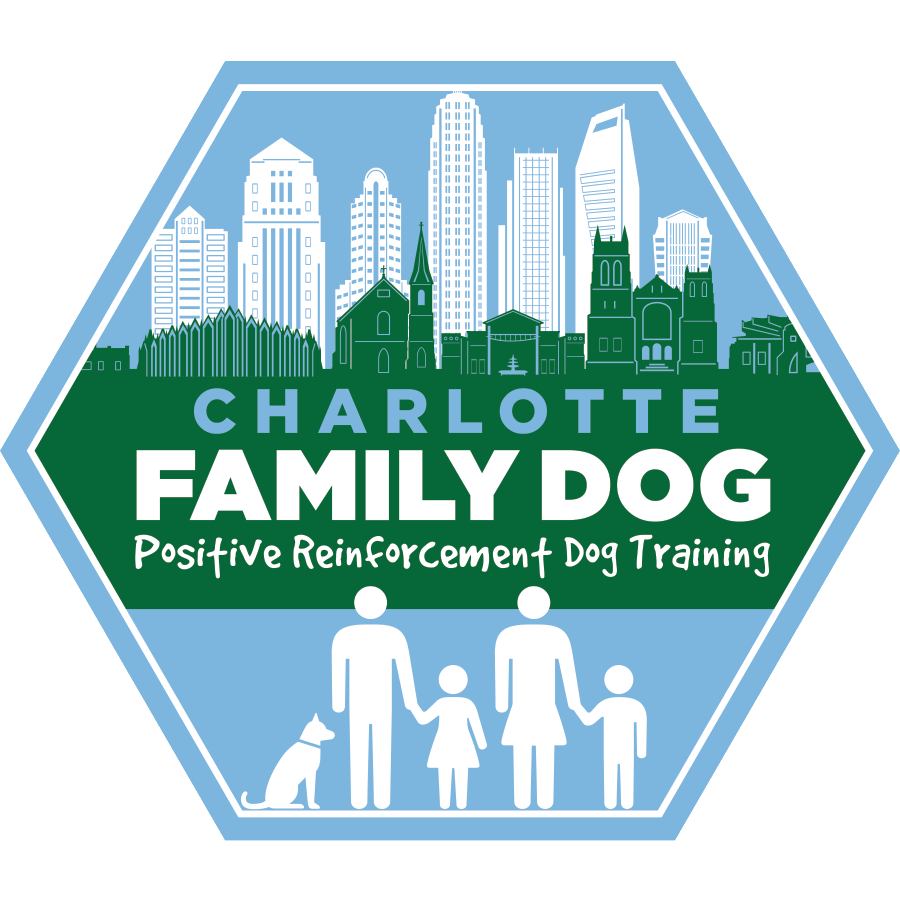
Charlotte Family Dog Private Training program is customized to get EVERYONE involved. Positive reinforcement training is all about creating a positive and fun experience for both the dog and the trainer. With creativity and imagination, I can help turn your dog training sessions into a fun and rewarding activity for the whole family!
New Puppy Training
Training consistency: Consistent training is crucial to help puppies learn what is expected of them and to establish a positive relationship between the puppy and the owner.
New puppies typically have a lot of the same problems, some of which include:
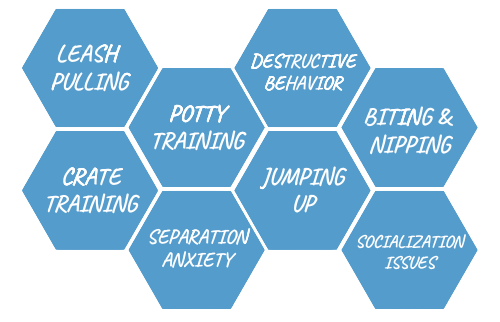
What is Positive Reinforcement Training?
Positive reinforcement training is a type of training that involves rewarding your dog for good behavior. The idea is to encourage your dog to repeat the behavior by associating it with a reward. The rewards can be anything from a treat, praise, or playtime; the key is to make the reward immediate and consistent.
Positive reinforcement training is based on the principles of operant conditioning, which means that rewarded behaviors are more likely to be repeated in the future. This training type differs from punishment-based methods, which can harm your dog’s mental and emotional well-being.
The Benefits of Positive Reinforcement Training
Positive reinforcement training has numerous benefits for both you and your dog. Here are just a few:
• Builds a strong bond between you and your dog
• Increases your dog’s confidence and self-esteem
• Encourages good behavior and reduces bad behavior
• Creates a positive learning environment
• Improves your dog’s mental and emotional well-being
The Science Behind Positive Reinforcement Training
Positive reinforcement training is backed by science. Studies have shown that dogs trained using positive reinforcement are more likely to be obedient and have better problem-solving skills. Additionally, positive reinforcement training has been shown to reduce stress and anxiety in dogs, which can lead to better overall health.
One study found that dogs trained using positive reinforcement had lower cortisol levels, a hormone associated with stress, than those trained using punishment-based methods. This is just one example of how positive reinforcement training can benefit your dog’s mental and emotional well-being.
My Training Philosophy: Science based dog training that works!
Science-based dog training is a process in which you teach your dog certain behaviors. The three main principles that I use to help train your family dog are operant conditioning, classical conditioning, and the Premack Principle.
Each principle has its unique approach and can be used to achieve specific training goals.
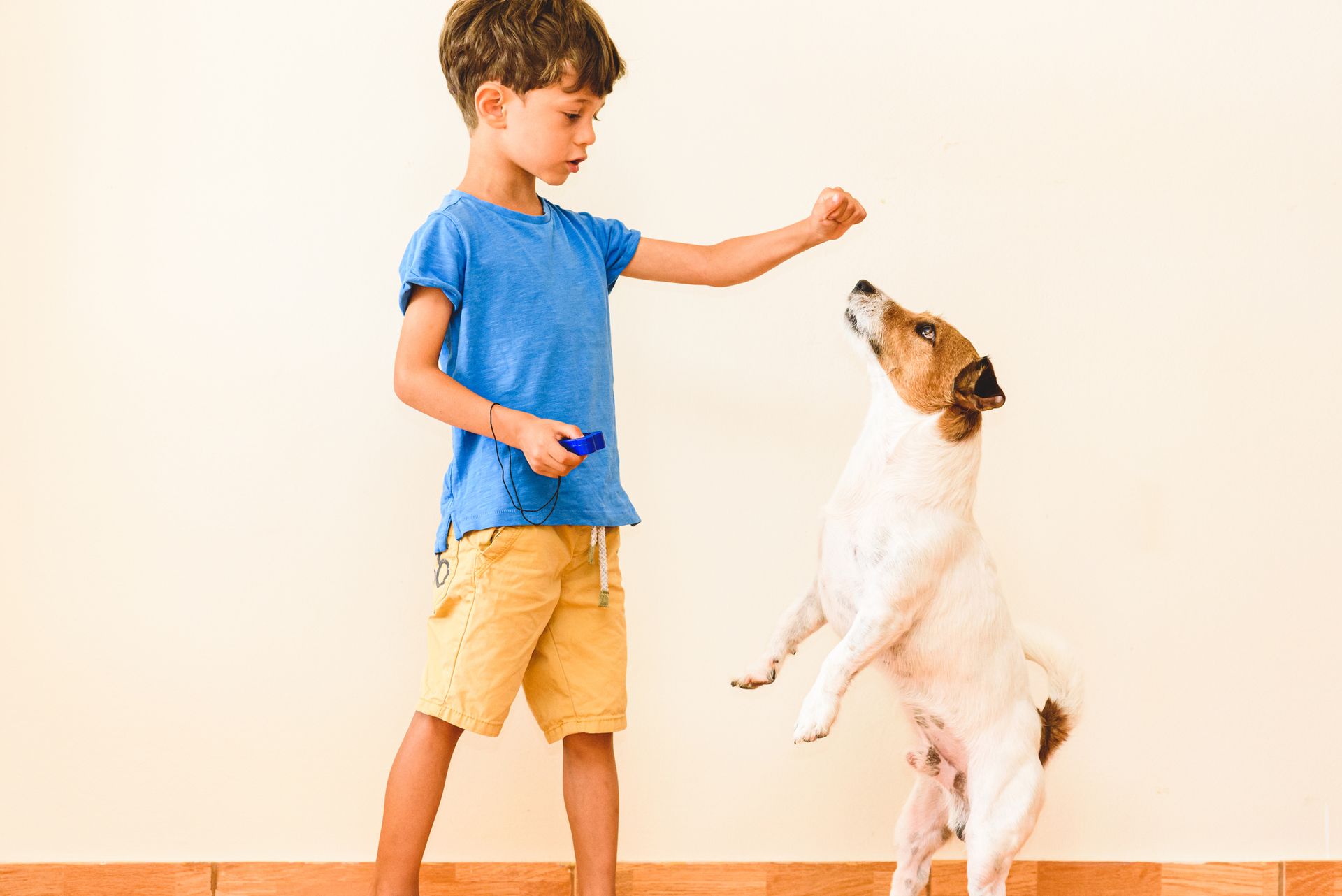
Operant Conditioning
In operant conditioning, behavior is influenced by its consequences. Behaviors that are followed by rewards or positive consequences are more likely to be repeated. Clicker training ( or a verbal marker) is an effective form of operant conditioning because the clicker ( marker) provides immediate feedback to the dog, clarifying what behavior is being rewarded. This helps to reinforce the behavior and make it more likely that the dog will repeat it in the future.
Classical Conditioning
Classical conditioning is a type of learning in which an animal learns to associate a neutral stimulus with a meaningful stimulus, resulting in a change in behavior. The classic example of classical conditioning is Pavlov's experiment with dogs, in which he conditioned them to salivate at the sound of a bell by repeatedly pairing it with the arrival of food. This experiment demonstrated how a neutral stimulus (the sound of the bell) can become associated with a meaningful stimulus (the arrival of food) through repeated pairing, resulting in a change in behavior (the dogs' salivation).
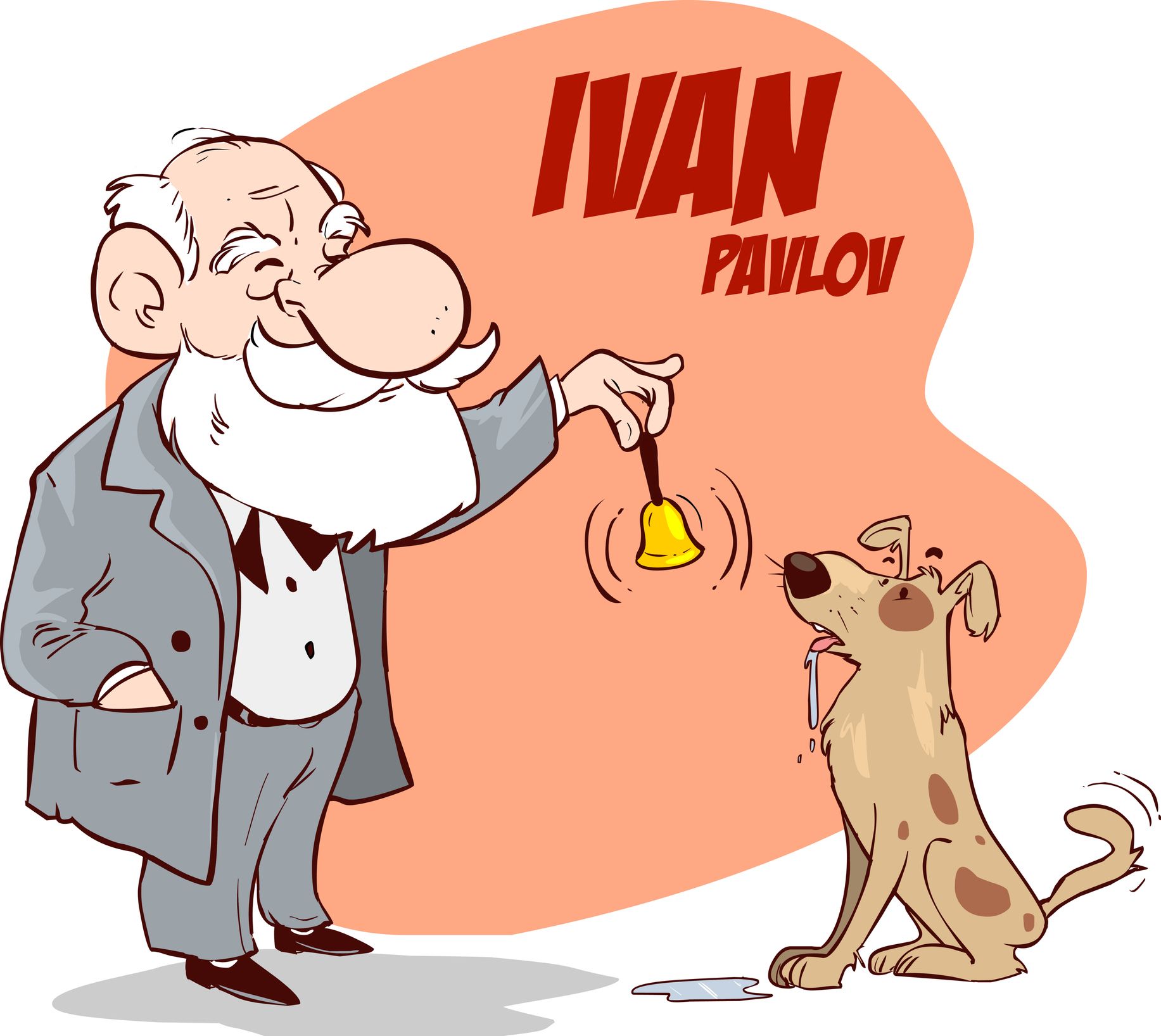
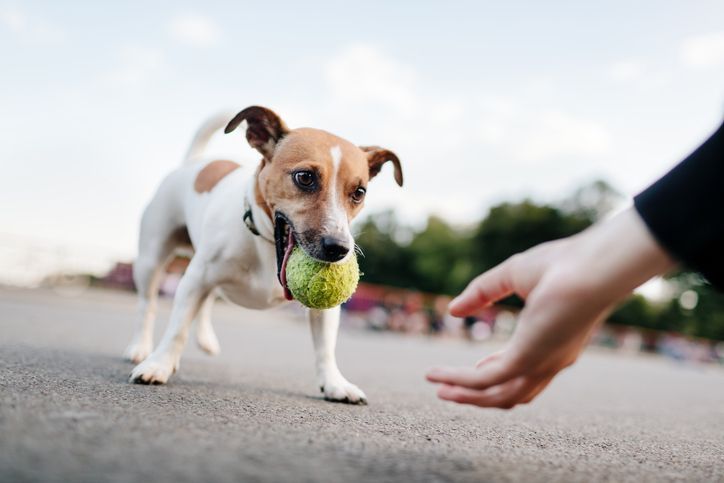
Premack Principle
The Premack principle is a theory in psychology that suggests that a high-probability behavior can be used to reinforce a low-probability behavior. In positive reinforcement dog training, an enjoyable or preferred activity (such as playing fetch or receiving treats) can reinforce a desired behavior (such as sitting or staying). For example, suppose a dog loves playing fetch but hesitates to come when called. In that case, the owner can use the Premack principle to reinforce the desired behavior of coming when called by immediately allowing the dog to play fetch. This helps to increase the likelihood of the dog coming when called in the future.
Overall, the Premack principle and positive reinforcement dog training are effective methods for training dogs and can help to establish desired behaviors while strengthening the bond between the owner and their pet.
What is Clicker Training?
Clicker training is a method of operant conditioning that uses the click or a marker word to reward desired behaviors and help you train with precision. This humane, effective, and modern training technique will reinforce positive behavior and get the best out of your
pet or animal companion.
My private training sessions will help you connect with your dog better than ever! Review our pricing page to get started.
I can visit you in Charlotte, NC and the surrounding areas!
